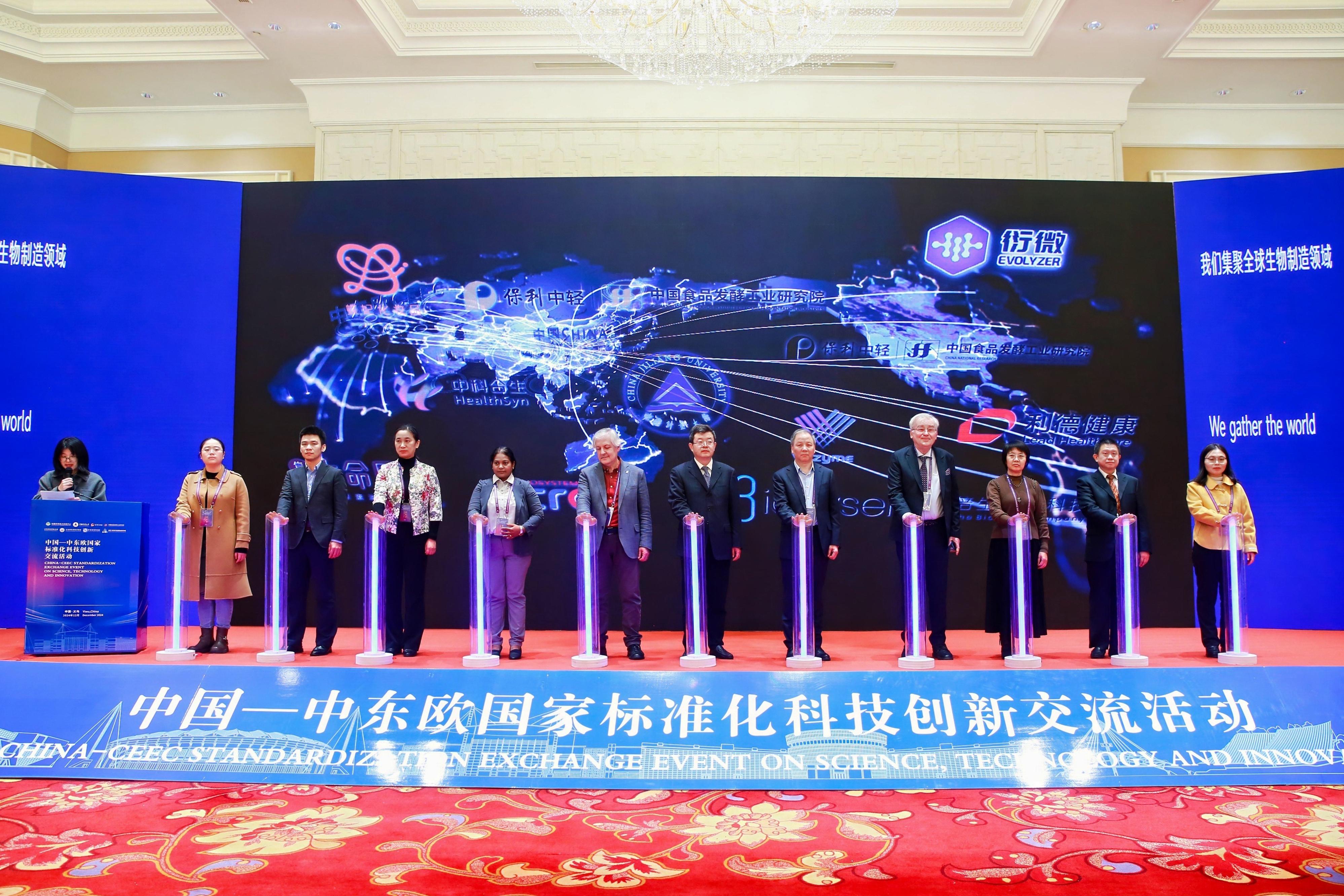Forging Future Biotech Standardization Blueprint

In the context of global economic integration and rapid technological development, standardization has become a pivotal factor in promoting sustainable economic development.
On December 13, a large group of global experts convened to discuss this collaboration at the China-CEEC (the Central and Eastern European Countries) Standardization Exchange Event on Science, Technology and Innovation, hosted by the China Science and Technology Exchange Center (CSTEC) and organized by China Jiliang University, in Yiwu, Zhejiang province. The focus was on advancing global standardization in biotech-related fields.
Deepening cooperation
Synthetic biology and biomanufacturing, current hot fields in technological innovation, have vast potential for applications. There is a rising demand for biopharmaceuticals, bio-sensing-based testing, and in vitro diagnostics.
This is where biological standardization comes into play. "Standardization is essential for normalizing, scaling and commercializing biomanufacturing technologies. It is crucial for fostering international cooperation and technical exchanges," Professor Chen Yongqiang, director of the publicity department at China Jiliang University, said.
Bron Kisler, chair of the International Organization for Standardization (ISO) Health Informatics Technical Committee Genomics Sub-Committee, said that global standards for chemical research and translation research have been implemented in chemical trials all around the world. However, achieving data accuracy remains a challenge.
"Biological standardization faces numerous challenges due to the complexity of the technologies involved, the interdisciplinary nature, and the need for global coordination," said Zheng Yuguo, academician of the Chinese Academy of Engineering. Key issues that need to be addressed include how to establish a comprehensive yet flexible standard system that meets the needs of different fields and applications, and how to rapidly respond and update standards to keep pace with the development of biotechnology.
To address such challenges, the International Alliance for Bioscience Standards (IABS) was established at the event,aiming to create unified global bio-related standards.
Experts expressed their willingness to deepening their cooperation in standardization through this alliance.
Facilitating exchanges
"Unified standards can not only improve production efficiency and product quality in biomanufacturing, ensure product safety and traceability, but also promote global product trade and technological exchange, facilitating the healthy development of the biomanufacturing industry," Zheng explained.
Midhat Jasic, honorary professor of nutrition at the University of Tulza in Bosnia and Herzegovina, said that, "A unified standard is a powerful tool for globalization, facilitating knowledge exchange and improving life globally."
Nirmala De Zoysa, senior deputy director of the Sri Lanka Standard Institution, highlighted the significant contribution of international standardization to promoting international trade, enhancing product quality and safety, and supporting sustainable development goals.
Turkish expert Servet Atayeter, manager of the ISO Food Committee's Fruit and Vegetable Products Subcommittee, also emphasized the essential need to establish unified standards for the biotechnology field globally.
"It enhances collaborations among countries," he said, adding that, "Comments from countries are very important at every [standardization] stage. The establishment of the IABS could be beneficial and result in a win-win situation."
Shigeyuki Tanaka, vice professor of Setsunan University, noted that a unified standard within an industry is crucial for fostering friendly relations and cooperation among countries, promoting unity and collaboration. "If there is an opportunity to participate in the development of global [industry-specific] unified standards, both the Japanese government and non-governmental organizations should be very proactive in engaging with the IABS."
High expectation
"China is a key player in international standard-setting organizations, such as those under the United Nations, contributing to global standards across various sectors including food safety, health and organic food production," Midhat said.
Regarding further cooperation, Gao Xiang, director general of the CSTEC, outlined CSTEC's proposals to promote mutually beneficial scientific innovation.
According to Gao, CSTEC suggests three key initiatives to enhance collaboration in biomanufacturing standardization. These include strengthening reciprocal exchanges through multi-level educational programs to foster mutual learning and trust; optimizing the joint cultivation of talent through collaborative R&D projects and internships; and capitalizing on the opportunity to co-establish international biomanufacturing standards, accelerating the progression from basic research to applied demonstrations to drive high-quality development in related industries.
International cooperation and open sharing are more critical now than ever, Gao Jin, vice mayor of Yiwu, said. "We anticipate that cooperation and exchanges will be enhanced within the field, the sharing of knowledge and technology will be strengthened, and alignment and integration throughout the industry chain will be promoted."
This column is written in cooperation with the China Science and Technology Exchange Center (CSTEC).






